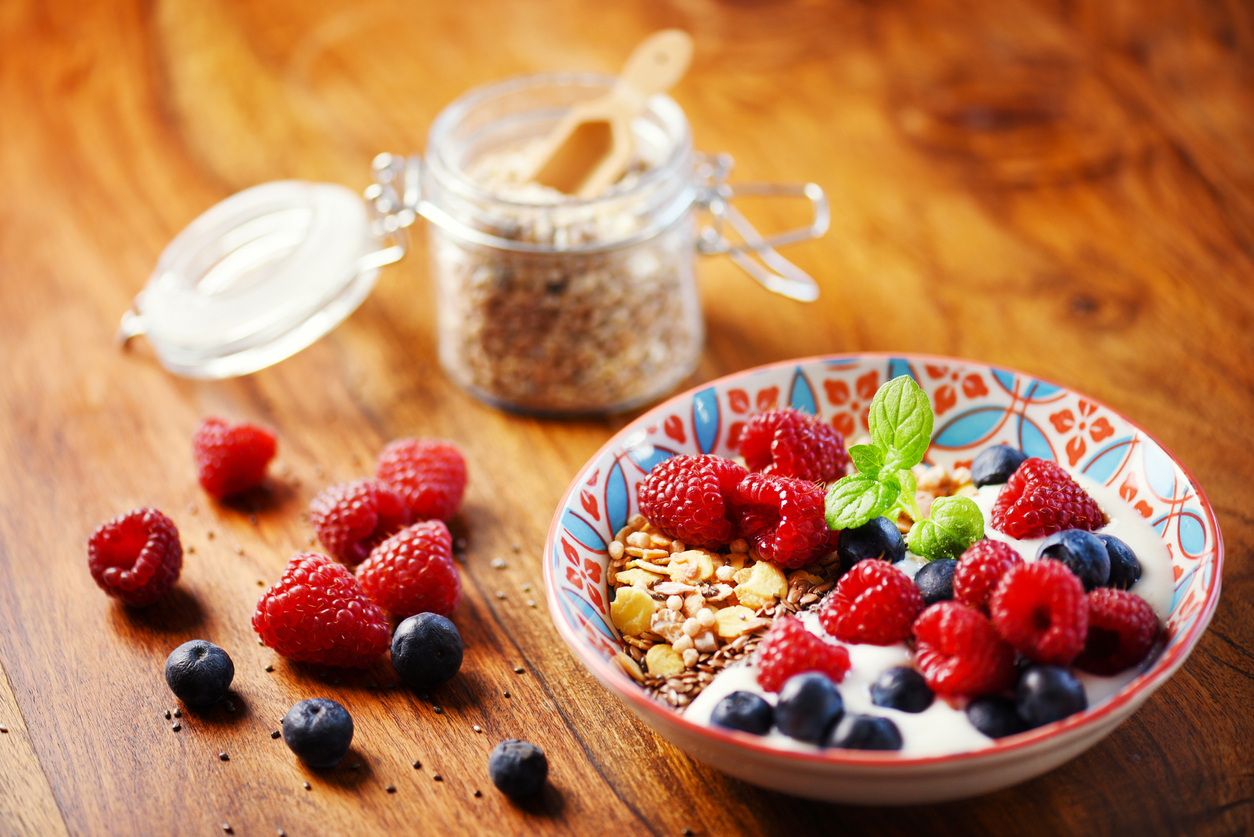Flaxseed: superpowers, superfood
It is worth incorporating flaxseed into your diet because it has valuable properties, especially when ground. Find out why you should enjoy it, but with caution.
The health benefits of flaxseed
A diet including flaxseed offers a variety of health benefits. It is rich in fibre, omega-3 fatty acids, antioxidants and certain phytochemicals. Flaxseed is best consumed ground or in the form of linseed oil, as this increases the bioavailability of the nutrients.
The fibre in flaxseed can support digestion and prevent constipation. It promotes healthy bowel function and helps lower cholesterol levels. In addition, the omega-3 fatty acids in flaxseed can reduce inflammation in the body and lower the risk of heart disease. They also support the health of the brain and nervous system.
Eating flaxseed is also good for diabetes
Flaxseed is also a superhero in the fight against free radicals and can potentially protect the body from cell damage and diseases such as cancer. Some studies also indicate that flaxseed has a positive effect on blood sugar levels, making the superfood very interesting for diabetics.
Due to the fact that the fibre it contains swells in the stomach, flaxseed also has a very satiating effect and prevents cravings. This also means that it can offer valuable support when losing weight.
What are the side effects of eating flaxseed?
Flaxseed contains a small amount of toxic hydrogen cyanide. Therefore, no more than 2 tablespoons of flaxseed and no more than 2 tablespoons of linseed oil should be consumed per day. The toxins in hydrogen cyanide are safe for most people in this amount – but if you want to be completely sure, you can also dissolve the toxins by pouring hot water over the flaxseed and allowing it to swell for 15 minutes.
If you eat too much flaxseed, common side effects include digestive problems such as flatulence, abdominal cramps and diarrhoea due to the high fibre content.
Get medical advice
In rare cases, allergic reactions may occur, especially in people with seed or nut allergies. Flaxseed can also influence the effect of certain medications, especially blood-thinning medications.
Large amounts of flaxseed in the diet should be avoided in the case of hormone-sensitive diseases. It is advisable to consult a doctor if you have any questions or concerns, especially if you already have existing health conditions or are taking medication.
How can you incorporate flaxseed into the diet?
Flaxseed can be incorporated into the diet in a variety of ways. Here are some options:
- Crushed flaxseed: This is easier to digest and enables better absorption of nutrients. It can be added to muesli, yoghurt, smoothies or salads.
- Linseed oil: Linseed oil is rich in omega-3 fatty acids and is well suited as a dressing for salads or as a topping for cooked vegetables. However, it should not be used for cooking or frying as the heat-sensitive omega-3 fatty acids can be destroyed.
- Baking: Flaxseed flour is ideal for baking. Flaxseed can also be used as an egg substitute in baking recipes. One tablespoon of ground flaxseed mixed with three tablespoons of water can replace one egg. This is particularly useful for vegans and people with food intolerances.
- Bread and pastries: Add linseed to the dough of bread, rolls, biscuits or muffins to give them a nutty taste and extra nutrients.
- Topping: Use crushed flaxseed as a topping for yoghurt, porridge or salads to add a crispy texture and extra fibre.
It is important to drink enough fluids when eating flaxseed, as flaxseed swells and requires moisture in the digestive tract. Start with small amounts and increase slowly to avoid any digestive problems.
More questions and answers about flaxseed
Flaxseed should be stored in an airtight container in a cool, dark place. Whole seeds stay fresh longer than ground seeds. Due to their comparatively short shelf life, it is important to check them regularly for spoilage and to dispose of flaxseed that is rancid or past its use-by date.
Flaxseed has a positive effect on digestion and bowel movements, as it is high in fibre. This can promote bowel activity, improve stool consistency and prevent constipation. Flaxseed should be consumed ground, as you run the risk of excreting whole seeds undigested.
Flaxseed mucilage is formed when flaxseed comes into contact with water. The mucilage forms a gel-like substance that has a calming effect on the gastrointestinal tract due to its high content of soluble fibre. It can have a protective and soothing effect in the event of irritation, inflammation or injury to the mucous membrane.
This is a question of preference and use. Flaxseed contains fibre and omega-3 fatty acids, while linseed oil is more concentrated in terms of omega-3 fatty acids. Both can be incorporated into the diet, depending on individual needs and preferences.
